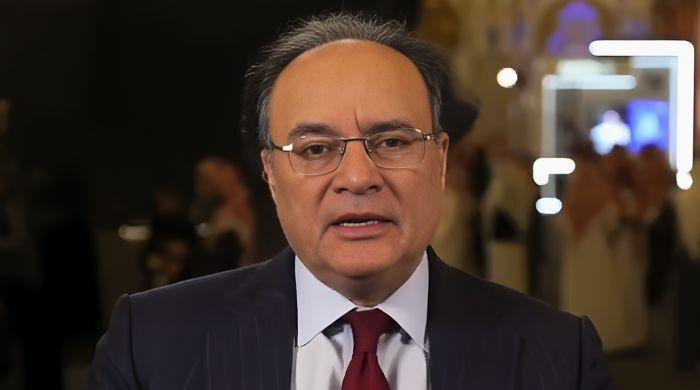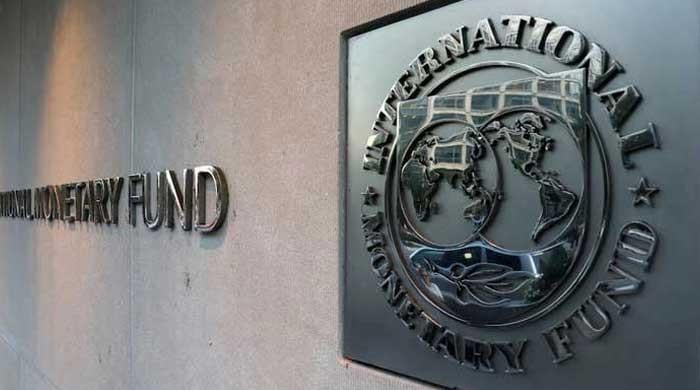US dollar falls as markets brace for presidential debate, inflation
The Federal Reserve is widely expected to cut interest rates next week for the first time in more than four years
September 11, 2024

NEW YORK: The dollar slid against some major currencies on Tuesday, consolidating Monday's gains ahead of key inflation data and a highly anticipated US presidential debate, even though neither outcome is likely to affect overall monetary policy.
Safe-haven currencies such as the yen and Swiss franc also gained amid a rout in bank shares, analysts said, after the Federal Reserve's regulatory chief on Tuesday outlined a plan to raise big banks' capital by 9%. That disappointed bank investors and some critics of the rule. The S&P 500 banks index <.SPXBK> fell 2.7% to 408.2, after earlier falling to a one-month low.
The Federal Reserve is widely expected to cut interest rates next week for the first time in more than four years. What is still up for debate, though, is the size of the rate cut. Fed funds futures have priced in a 67% chance of a 25 basis point (bp) cut at the Sept. 17-18 policy meeting, and a 33% probability the Fed might do 50 bps, according to LSEG calculations.
The odds on the 50-bp cut rose as high as 50% last Friday after a mixed US labor report.
"The general theme is consolidation. If you look at the one-month chart of the dollar index, we're basically in the middle of the range," said Eugene Epstein, head of structured products, North America at Moneycorp in New York.
"So we have been grinding higher from the lows in late August and the driver of that has been mainly on the rates front. The market had pretty high expectations on the Fed cut next week ... but some of those expectations have been dialed back," he added.
Investors will still be looking at the US consumer price index report for August due for release on Wednesday. The Fed, however, has indicated that it is focused less on inflation and more on employment and remained confident that US inflation is on a downward trajectory.
The headline US CPI is expected to have risen 0.2% on a month-on-month basis in August, according to a Reuters poll, unchanged from the previous month. However, on a year-on-year basis, it is seen to have gained just 2.6%, down from 2.9% in July.
In afternoon trading, the dollar fell 0.5% against the yen to 142.35 yen
Analysts do not expect the Bank of Japan to raise rates or to provide decisive guidance when it meets on Friday next week.
Against the Swiss franc, the dollar slid 0.3% to 0.8466 franc
The drop in oil prices added to global jitters, pushing the yen and Swiss franc higher, analysts said. Global oil benchmark Brent crude futures settled at their lowest since December 2021 on Tuesday, after OPEC+ revised down its demand forecast for this year and 2025, offsetting supply concerns from Tropical Storm Francine.
Meanwhile, the euro
Investors are watching Europe's political backdrop, citing the stalemate in France and heightened uncertainty across the EU after German regional elections.
The spotlight though will be on the messaging from the European Central Bank on Thursday after its policy meeting. Traders are pricing in 63 bps of ECB easing this year.
The dollar index, a gauge of the greenback's value against six major currencies, was flat to slightly lower at 101.63<=USD>. So far this year, the dollar index was up 0.1%.
Investor focus will also be on the televised US presidential debate between Republican nominee Donald Trump and his rival, Democratic Vice President Kamala Harris, later on Tuesday that could weigh heavily on the November election.
Investors see the greenback rising in the event of a Trump victory, as tariffs might prop up the currency and higher fiscal spending could boost interest rates.
The pound, meanwhile, rose after UK data showed robust employment growth. It was last up 0.1% at $1.3081
In China, the country's imports missed forecasts and grew just 0.5%. That followed Monday's lower-than-expected inflation data, highlighting still weak domestic demand.
China's yuan eased slightly versus the dollar, which rose 0.1% to 7.1193, with losses capped by better-than-expected export data.









